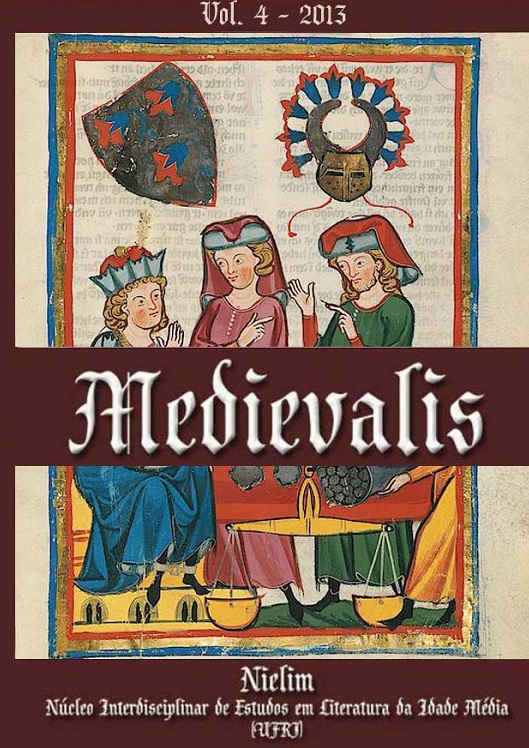Conto de Amaro: percurso do eleito e auxílio feminino na busca do paraíso terreal
DOI:
https://doi.org/10.55702/medievalis.v2i2.44229Abstract
Resumo: Este artigo trata da viagem imaginária de um leigo chamado Amaro e seu percurso em busca do Paraíso Terrestre. A obra anônima é de origem portuguesa e foi produzida no Mosteiro de Alcobaça (códice 266) entre fins do século XIV e início do século XV. O texto guarda pontos de contato com a Navigatio Sancti Brendani Abbatis, relato sobre São Brandão e com narrativas irlandesas, como The Voyage of Bran (Imram Brain Maic Feibal). Uma das diferenças entre Amaro e Brandão é que na narrativa sobre Amaro, o papel feminino é fundamental tanto na proteção do eleito durante a viagem, quanto na sua condução ao Paraíso terreal, o que leva a aproximações com os relatos célticos.Palavras-chave: Conto de Amaro, viagem imaginária, Portugal, feminino, Paraíso Terreal.
Abstract: This paper deals with an imaginary voyage from a laic called Amaro and his journey in search of terrestrial Paradise. The anonymous work is from Portuguese origin and was produced in the Monastery of Alcabaça (codex 266) between the end of 14th century and the beginning of 15 th century. The text has connections with Navigatio Sancti Brendani Abbatis, narrative about Saint Brendan and with irish narratives, such as The Voyage of Bran (Imram Brain Maic Feibal). One of the differences between Amaro and Brendan is that in the manuscript about Amaro, the feminine role is fundamental both in the protection of the elected one during the voyage and in is his conduction to the terrestrial Paradise, which leads to approximations with the celtic voyage stories.
Keywords: Tale of Amaro (Conto de Amaro), imaginary journey, Portugal, feminine, Terrestrial Paradise
Published
2015-08-18
Issue
Section
Artigos

